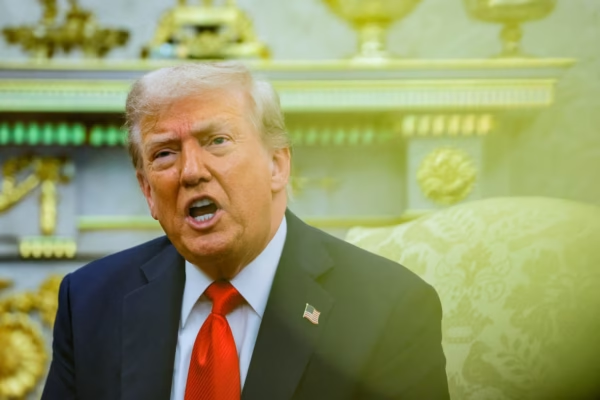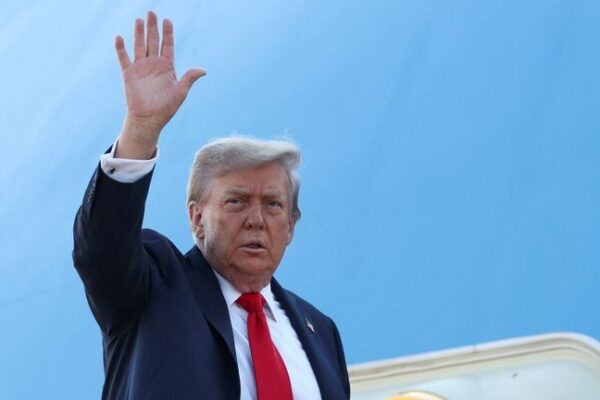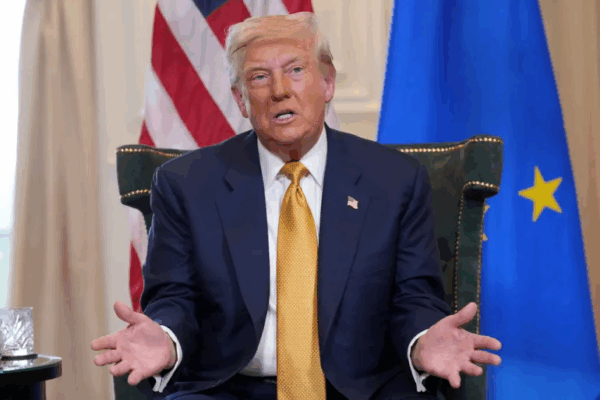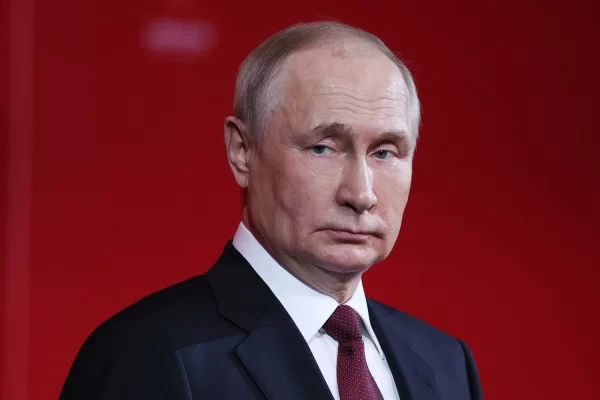Amid stagnant peace efforts in Ukraine, US President Donald Trump and Russian President Vladimir Putin have found rare alignment—blaming Europe for the continued impasse. This comes three weeks after their high-profile summit in Alaska, which ended with no concrete outcomes. In a Thursday call with European leaders, Trump urged the continent to do more to cut economic ties with Russia, particularly oil purchases, which he claimed generated €1.1 billion for Moscow in just one year. “Europe must stop purchasing Russian oil that is funding the war,” a White House official stated. The call followed Trump’s comments that he plans to speak with Putin again, even as the Russian leader continues to ignore multiple peace deadlines. Trump’s approach, while forceful in tone, has been vague on enforcement. “If we’re unhappy about it, you’ll see things happen,” he said, without elaborating. Despite Europe’s efforts—like last week’s Paris summit where 26 nations agreed to provide forces for a future peacekeeping mission—Trump’s administration has offered limited commitment and continues to pressure Europe and China, without applying equivalent pressure to Beijing directly. Double Standards and Shifting Alliances Trump’s foreign policy is increasingly seen as transactional and unpredictable. While demanding European action on Russian oil, he has refrained from sanctioning China, citing ongoing trade talks. Meanwhile, India has faced punitive tariffs from Trump for buying Russian oil—further straining relations with the strategic partner and pushing New Delhi closer to Beijing and Moscow. This week, Chinese President Xi Jinping gave Indian Prime Minister Narendra Modi a warm welcome, with Modi even seen riding in Putin’s limousine—mirroring Trump’s recent public camaraderie with the Russian president. Russia Pushes for Division Putin, meanwhile, has ramped up efforts to fracture NATO unity, accusing Europe of “hysteria” over alleged Russian military threats. “Russia has never had, does not have, and will never have any desire to attack anyone,” he claimed during meetings with leaders like Slovak Prime Minister Robert Fico in Beijing. In a symbolic echo of Alaska, Putin warned Europe not to “throw a wrench” in his negotiations with Trump. Simultaneously, suspected GPS jamming of a plane carrying EU Commission President Ursula von der Leyen was blamed on Russia—though Moscow dismissed the claim as “fake.” Security Guarantees, but No Breakthrough At the Paris summit, French President Emmanuel Macron announced that 26 countries had pledged contributions to a future peacekeeping or reassurance force for Ukraine, should a deal be reached. Macron also emphasized the need for an “American safety net”, indicating that US support—however limited—remains crucial. However, no firm meeting between Putin and Ukrainian President Volodymyr Zelensky is in sight. While Putin offered to host Zelensky in Moscow, Kyiv views the offer as a non-starter, citing security risks and a likely political trap. There are also concerns that Putin could weaponize a bilateral meeting to undermine Zelensky in Trump’s eyes. Analysis: Big Rhetoric, Few Results Despite dominating headlines with high-stakes diplomacy, Trump appears increasingly frustrated with the lack of progress—yet unwilling to deploy the leverage or consistency needed to change course. His tendency to scold allies, court adversaries, and avoid firm commitments has left both Ukraine and US allies guessing. As Putin continues to exploit divisions and as Trump balances contradictory goals, the only clear outcome is continued gridlock, while Ukraine waits for real peace—and real guarantees.
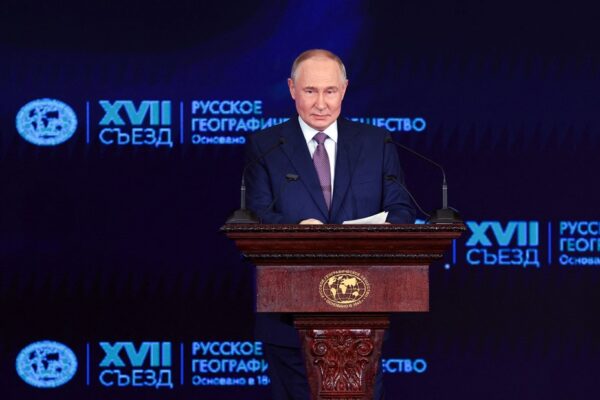


![Five Key Takeaways from Trump-Starmer Meeting in the UK Five Key Takeaways from Trump-Starmer Meeting in the UK Aylesbury, UK – September 18, 2025 — U.S. President Donald Trump and UK Prime Minister Keir Starmer presented a united front on major global issues during a joint press conference at Chequers, wrapping up Trump’s three-day visit to the United Kingdom. Despite recent tensions between Washington and European allies, the meeting underscored strong transatlantic ties as the two leaders discussed Ukraine, NATO, Gaza, Afghanistan, and more. 1. Trump Says Putin ‘Let Him Down’ Over Ukraine President Trump expressed frustration with Russian President Vladimir Putin over the prolonged war in Ukraine, admitting he underestimated the challenge of resolving the conflict. “I thought it would be easiest because of my relationship with President Putin, but he’s let me down,” Trump said. PM Starmer reiterated the UK’s commitment to supporting Ukraine, vowing to increase pressure on Russia and push for a lasting peace deal. 2. Divergence on Gaza, But Unity Against Hamas While both leaders condemned Hamas’s October 7, 2023 attack on Israel, they differed on the broader approach to the Gaza conflict. Trump avoided criticizing Israel’s ongoing military campaign, which has killed over 65,000 Palestinians, calling October 7 “one of the worst days in the history of humanity.” Starmer's previous pledge to recognize a Palestinian state was noted as a “point of disagreement,” but Trump praised the UK leader’s strong stance against Hamas. 3. Trump Praises NATO and Increased Defense Spending Once a vocal NATO critic, Trump struck a different tone, applauding the alliance’s commitment to boost defense spending. “I want to thank NATO and our wonderful head of NATO, Mark [Rutte]… They’ve done a great job,” he said, highlighting a new pledge for members to spend 5% of GDP on defense. Trump emphasized U.S. support in supplying weapons to NATO allies, stressing that the alliance was now “paying its fair share.” 4. Bagram Airbase Back in Focus Trump hinted at possible negotiations with the Taliban for the U.S. to regain access to the Bagram airbase in Afghanistan, which was vacated in 2021 during the Biden administration’s withdrawal. “We’re trying to get it back,” Trump said, citing its strategic location near China’s nuclear facilities. The Taliban, however, quickly dismissed the proposal, stating they welcome engagement with the U.S. but will not allow any foreign military presence. 5. Trump Weighs in on Kimmel Firing Trump also addressed the firing of late-night host Jimmy Kimmel by ABC, following political controversy over remarks involving conservative commentator Charlie Kirk. “Jimmy Kimmel was fired because he had bad ratings… He’s not a talented person,” Trump said, dismissing concerns about free speech and framing the firing as a business decision. Conclusion: The Trump-Starmer meeting reflected a broad effort to reinforce U.S.-UK ties amid ongoing global crises. While areas of disagreement remain, particularly on Middle East policy, both leaders signaled alignment on Ukraine, NATO, and global security cooperation.](https://trendbrio.com/wp-content/uploads/2025/09/USA-TRUMP-BRITAIN-AND-KEIR-STARMER-600x400.webp)
